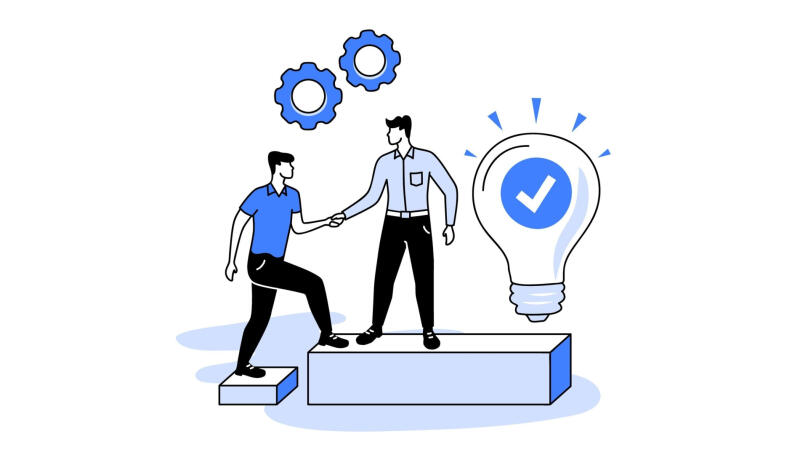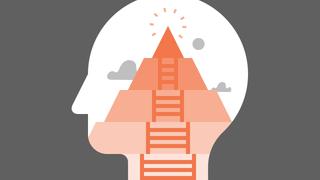Coaching

What is coaching, and what different types of coaching are currently available? How can you become a coach in the near future? We will provide you with all the answers in our comprehensive guide.
What is coaching?
Coaching is a method for developing people's abilities and directing them towards a more suitable and stimulating path. Coaching can help you cope with difficulties, resolve issues, and also help you to find yourself. It represents the traditional definition of coaching through a here-and-now approach aiming to improve a person's productivity and assist them in discovering their true path in life.
Coaching generally involves a session that consists of a discussion between a coach and the person whom they will train. Coaching is employed within organisations, families, friendships, and personal psychotherapy. It is conducted by qualified and professional specialists who have studied to be coaches and have the permission to work as one.
The overall meaning of coaching is to help someone become the best version of themselves. Coaching can be personal, professional, educational, etc. Still, it always focuses on improving people and their attributes, discovering and revealing hidden prospects.
Coaching VS mentoring
What is the difference between coaching and mentoring? Let's explore some of the main differences.
Mentoring: what is it?
A mentor is a person who shares their knowledge, skills, and experience. By doing this, they help others grow and can demonstrate how something can be done by using their experience. A coach recommends something to another person that will assist them in attaining their goals, unlocking their potential, and discovering new meaning in life. The coach could ask transformational or simple questions while talking a lot because they teach people and initially position themselves as teachers. However, both coaching and mentoring sessions are aimed at helping people achieve their dreams. They can occur online and offline, in a group or as part of individual work.
Mentoring is a more long-term matter. You will usually study with a mentor for over six months, and sometimes several years. This is normal because a mentor, as we have already discussed, is, first and foremost, a teacher. They are not a psychotherapist or a friend, but they can be with a client for a long time. Eventually, a mentor becomes a part of the team together with you. To become one, you don't need any special qualifications; you can take several courses and stop right there. A mentor may be able to guide their student innately; this is actually already happening. Mentoring is less structured than coaching and is based on the student's preferences and thoughts.
Coaching: what is it?
Coaching is short-term in nature. It could be a conversation for 10 or 15 minutes, or a discussion over several hours. Can the relationship between a coach and their client be long-term? Sure, but it's not a constant. A coach must be proficient in their profession, you can't become one after one training session. Many coaches possess multiple qualifications that allow them to become certified professionals. A coach doesn't teach but asks rather structured questions in their work. It helps people find themselves, although it is not a branch of psychology.
What skills do you need to become a mentor?
Let's discuss the differences between the skills needed to become a mentor and a coach. In the first instance, you will need:
-
The desire and ability to help others;
-
The experience, knowledge, and mindset you want to convey to others;
-
To be good at communicating, listening, and understanding people's emotions;
-
To maintain a long-term commitment to stay the course and feel good about this lifestyle;
-
The ability to transform yourself and others with a vibrant energy that inspires change;
-
The capacity to identify the student's objectives, follow them, and confidently transmit them through your own experience.
What skills do you need to become a coach?
Let's say you're considering life coaching or personal coaching. What do you need to know and be able to do to become a coach?
-
Have a clear, bright vibe that motivates and inspires productive work;
-
Understand your client and redirect their thoughts towards a new path;
-
Effectively utilise personal resources;
-
Challenge the client without fear, but only when appropriate and in the right context;
-
Solve problems without putting them off or being afraid to deal with them;
-
Take responsibility for your client's results;
-
Be competent at sales to offer your services successfully. Unfortunately, this skill is vital for coaching.
What are the benefits of coaching and mentoring?
- They are considered to be highly effective teaching methods. You can choose any of the two, however, their combination is a must-have for any conscientious student.
- These methods can both be formal or informal, easily fitting into any scenario.
- They can enhance employee engagement and retention within the company. It is particularly beneficial for small businesses with financial problems!
- They can both be employed without lengthy training - the company can pay for a course or invite a third-party specialist. There are many such professionals on the market. They charge a reasonable amount for their services.
- They can boost self-confidence and communication skills and improve a person's productivity. So, if you are unhappy with your employee's performance, it's time to book a session with a coach!
Why is coaching important?

Why is coaching so indispensable? Why is everyone talking about coaching skills and coaching for management? What is so beneficial about it? We will tell you everything now.
Coaching helps you achieve your goals
If a coach helps you determine which goals truly belong to you and establishes a plan to achieve them, then you must follow it. No more procrastination!
Coaching makes you more self-reliant
If a coach confirms your judgment and shows you that nothing scary in the world could make it worthwhile to hide behind others, you become more independent. And this happens only thanks to the right words. Although you have to learn to become a person who can provide them.
Coaching makes you enjoy your work and life more
You know yourself, and you know how to please yourself. This is a huge benefit of coaching - you no longer need to pretend and think that since everyone around you has to tolerate jobs they hate, tyrant bosses or husbands who consider themselves the most important person on the whole planet, you should do the same. Coaching will increase your self-confidence - about 80% of coaching clients report these results from their sessions.
Coaching helps you take responsibility
It can be scary to take responsibility for your own life. What if you do something wrong? Coaching shows you that it is impossible to do anything wrong - there is simply no right way to do it.
Coaching is a key to true productivity
Career coaching, for example, enables you to understand what is preventing you from achieving maximum productivity. It shows why you cannot stop procrastinating or be happier while working-more than 70% of people who have worked with a coach benefit from improved performance. At the same time, almost 86% of companies surveyed by ICF that have introduced coaching into their corporate culture note that they quickly recouped their investment in coaching professionals!
How will coaching be beneficial for a company?
It will increase employees' understanding of their capabilities, help them to become bolder and take responsibility, and increase their involvement in work. Also, besides boosting productivity, coaching allows you to discover and teach employees with high potential, identify opportunities for the organisation's development, and motivate staff. And this is just the tip of the iceberg! Coaching is extremely beneficial for companies, and many American corporations actively utilise it when training employees.
Types of coaching

There are different coaching styles. Below, you will find some examples.
1. Executive coaching
It is designed for senior management, helping to create a coherent team, implement new creative ideas, and cope with crises and change. It is also suitable for business people, as this type of coaching is similar to business courses they probably already know by heart.
2. Leadership coaching
This is designed for anyone, even those who have yet to manage a large team. As part of this training, you will be shown how to work with different types of people, motivate them to achieve their goals, and be a true leader whom millions will follow.
3. Performance coaching
It is designed for anyone who wants to increase their productivity. This type of coaching develops the skills needed to achieve a particular goal and looks for areas that require improvement. At the end of the "training session", you may be asked to do homework - this is normal for this type of coaching.
4. Sales coaching
It is designed for professionals working with sales. Here, you will find that coaching is combined with mentoring: the mentor provides the theory, and the coach helps you practice selling anything to anyone.
5. Business coaching
It is designed for leaders who work with constantly changing companies or want to build their own businesses. In business coaching, you will not often find the usual chaos: here, they will help you devise plans to achieve results and execute them. Furthermore, the result is not personal but relates to the business or project.
6. Success coaching
Online coaches from social networks frequently work within this framework. They will help you discover yourself, understand your capabilities, learn to live with yourself and much more. This type of coaching sometimes fails because working with such a complex category requires advanced skills and several diplomas from coaching programs.
What coaching models exist today?

In general, coaching can be divided into three models.
- First: authoritarian. The coach informs the client about the goals and objectives of the session and structures everything that can be structured, but it will take much effort to achieve set goals. However, this type of coaching will provide an effective solution to accumulated problems!
- Second: democratic. Here, the coach will be quite flexible; they accept different goals and devise various ways to achieve them. Often, democratic coaches work with teams or pairs - yes, pair coaching also exists. It is similar to other types of coaching, except for the number of people participating in the session and their relationship with each other.
- Third: holistic. The coach portrays the client as someone who is prepared for change, and, as a result, they do not scrutinise various aspects of you under a microscope or consider them separately. If you need assistance in several areas of your life simultaneously, this model is ideal for you! Coaching, in general, is beneficial for observing and evaluating yourself and taking responsibility for yourself.
The coaching process and methods
What does the coaching process look like, and what methods does it employ?
- The SMART goal method. This type of goal is specific, measurable, achievable, relevant, and clearly tied to some deadline. Goals of this type are actively utilised in coaching.
- The leading questions method. This poses profound questions to clients, avoiding abstractions and enabling them to arrive at their own conclusions. To accomplish this, you must discover many important details about the client during coaching.
- The positive approach method. Even if everything seems distressing, the coach must remain optimistic. Ultimately, everything often turns out well because the coach believes in the right way out of a situation and leads the client towards it.
- The personal confidence method. Inspire others, show clients how to increase their capabilities, and reveal your appreciation for their ideas and projects! The more you motivate your clients, the better. This paradigm can also be included in the coaching client's growth model.
- The sympathy method. Sympathise with the client. Empathy is an extremely vital emotion for you and the client. Use it to adapt your approach to different people easily.
How to become a coach
To become a coach, you need:
-
To choose a niche. Be cautious because you have a lot to pick from! You could be a relationship, marketing, or spirituality coach;
-
To complete training. No, you can't do without it! You must study to become a coach;
-
To receive certification and verify it. Therefore, to be able to teach, take on clients, and not be afraid that you will harm anyone, wait until the certificate is issued and registered in international databases;
-
To deal with legal issues. Registering as an entrepreneur, setting up accounts, and searching for outsourced lawyers is crucial, so tread it carefully;
-
To start working. Tell everyone about your new status on social networks - we believe you might get your first clients this way! Be bold and speak up loudly. Leave prejudices in the past, and you should certainly introduce your friends to the new version of you! In addition, to attract your first clients, offer introductory sessions free of charge - they will not be able to pass up such an opportunity.
Conclusion
To become a coach, you must really want to help people. Training can be free; you can also get your teeth into internships and obtain a job through social networks. Go for it, and you will definitely succeed! However, be sure to try your best - coaching requires knowledge, a focused approach, time, and other resources. Nevertheless, real coaches are always in huge demand, so you can be confident in the result of your efforts!























